my spark job currently runs in 59 mins. I want to optimize it so that I it takes less time. I have noticed that the last step of the job takes a lot of time (55 mins) (see the screenshots of the spark job in Spark UI below).
I need to join a big dataset with a smaller one, apply transformations on this joined dataset (creating a new column).
At the end, I should have a dataset repartitioned based on the column PSP (see snippet of the code below). I also perform a sort at the end (sort each partition based on 3 columns).
All the details (infrastructure, configuration, code) can be found below.
Snippet of my code :
spark.conf.set("spark.sql.shuffle.partitions", 4158)
val uh = uh_months
.withColumn("UHDIN", datediff(to_date(unix_timestamp(col("UHDIN_YYYYMMDD"), "yyyyMMdd").cast(TimestampType)),
to_date(unix_timestamp(col("january"), "yyyy-MM-dd").cast(TimestampType))))
"ddMMMyyyy")).cast(TimestampType)))
.withColumn("DVA_1", date_format(col("DVA"), "dd/MM/yyyy"))
.drop("UHDIN_YYYYMMDD")
.drop("january")
.drop("DVA")
.persist()
val uh_flag_comment = new TransactionType().transform(uh)
uh.unpersist()
val uh_joined = uh_flag_comment.join(broadcast(smallDF), "NO_NUM")
.select(
uh.col("*"),
smallDF.col("PSP"),
smallDF.col("minrel"),
smallDF.col("Label"),
smallDF.col("StartDate"))
.withColumnRenamed("DVA_1", "DVA")
smallDF.unpersist()
val uh_to_be_sorted = uh_joined.repartition(4158, col("PSP"))
val uh_final = uh_joined.sortWithinPartitions(col("NO_NUM"), col("UHDIN"), col("HOURMV"))
uh_final
EDITED - Repartition logic
val sqlContext = spark.sqlContext
sqlContext.udf.register("randomUDF", (partitionCount: Int) => {
val r = new scala.util.Random
r.nextInt(partitionCount)
// Also tried with r.nextInt(partitionCount) + col("PSP")
})
val uh_to_be_sorted = uh_joined
.withColumn("tmp", callUDF("RandomUDF", lit("4158"))
.repartition(4158, col("tmp"))
.drop(col("tmp"))
val uh_final = uh_to_be_sorted.sortWithinPartitions(col("NO_NUM"), col("UHDIN"), col("HOURMV"))
uh_final
smallDF is a small dataset (535MB) that I broadcast.
TransactionType is a class where I add a new column of string elements to my uh dataframe based on the value of 3 columns (MMED, DEBCRED, NMTGP), checking the values of those columns using regex.
I previously faced a lot of issues (job failing) because of shuffle blocks that were not found. I discovered that I was spilling to disk and had a lot of GC memory issues so I increased the "spark.sql.shuffle.partitions" to 4158.
WHY 4158 ?
Partition_count = (stage input data) / (target size of your partition)
so Shuffle partition_count = (shuffle stage input data) / 200 MB = 860000/200=4300
I have 16*24 - 6 =378 cores availaible. So if I want to run every tasks in one go, I should divide 4300 by 378 which is approximately 11. Then 11*378=4158
Spark Version: 2.1
Cluster configuration:
- 24 compute nodes (workers)
- 16 vcores each
- 90 GB RAM per node
- 6 cores are already being used by other processes/jobs
Current Spark configuration:
-master: yarn
-executor-memory: 26G
-executor-cores: 5
-driver memory: 70G
-num-executors: 70
-spark.kryoserializer.buffer.max=512
-spark.driver.cores=5
-spark.driver.maxResultSize=500m
-spark.memory.storageFraction=0.4
-spark.memory.fraction=0.9
-spark.hadoop.fs.permissions.umask-mode=007
How is the job executed:
We build an artifact (jar) with IntelliJ and then send it to a server. Then a bash script is executed. This script:
export some environment variables (SPARK_HOME, HADOOP_CONF_DIR, PATH and SPARK_LOCAL_DIRS)
launch the spark-submit command with all the parameters defined in the spark configuration above
retrieves the yarn logs of the application
Spark UI screenshots
DAG



